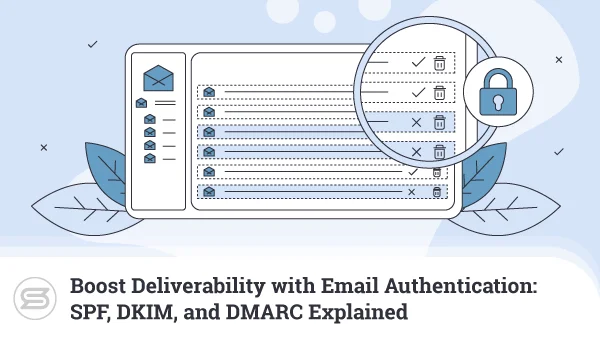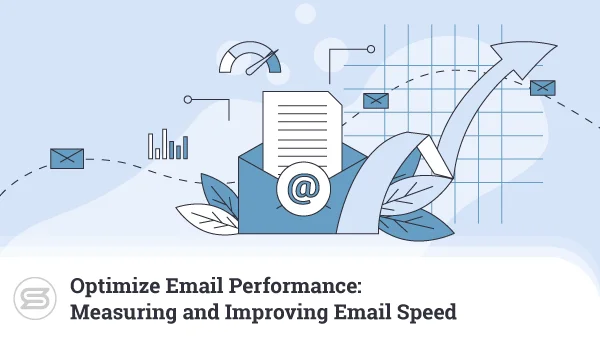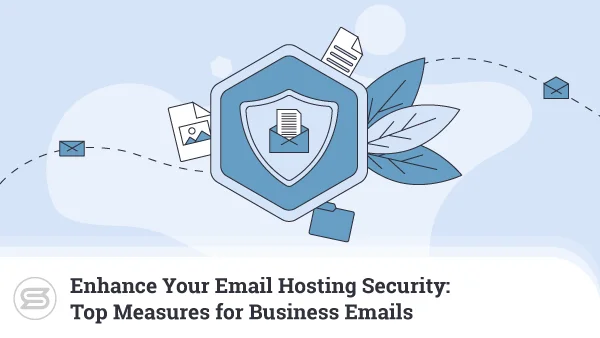A Comprehensive Guide to Email Archiving: Data Retention and Compliance
Think email archiving is dull? Think again. It’s as crucial as your morning brew in the business world.
Imagine this: Your inbox is a flood of emails. Losing track of an important one is easy. Finding it again? That’s the tough part.
Email archiving isn’t just about stashing emails. It’s your behind-the-scenes hero. The one that saves you from GDPR nightmares and the panic of lost conversations (like that important one with Dave from accounting).
Every industry has its rules for storing emails. One wrong move and issues can go as far as legal troubles. So, this isn’t your average IT task – it can be a safety net for your business.
Ready to dive in? We’re breaking down email archiving. What it is, why it’s a big deal, and how to nail it.
And let’s talk solutions, like ScalaHosting’s tailored plans. They’re key in making sure your emails are more than just stored – they’re stored smartly, keeping you legally safe and making life simpler.
Email Archiving vs Data Backups: Know the Difference
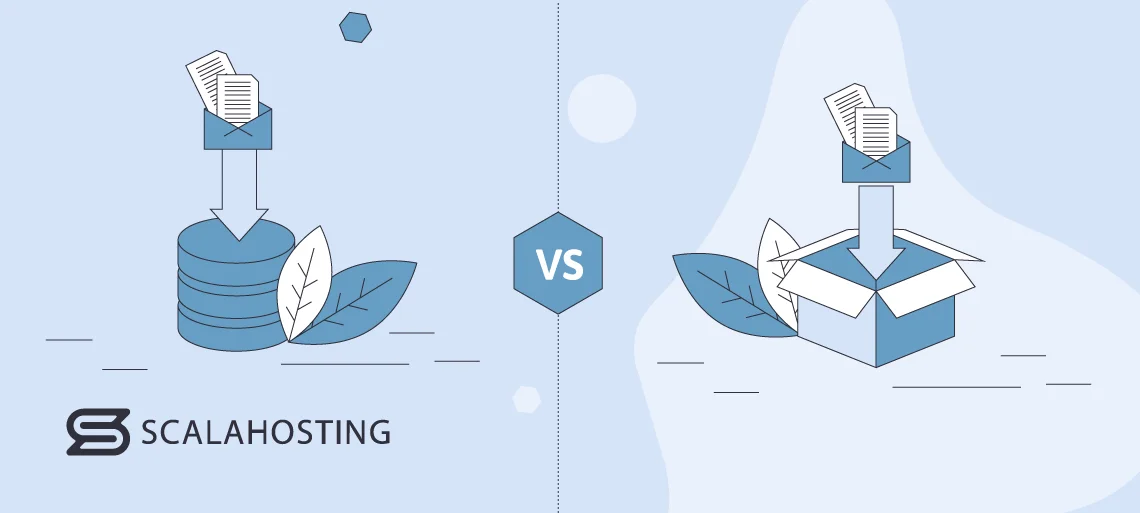
First up, let’s clear the air: email archiving and backups? They’re not the same. And yes, understanding this is key.
Email Archiving: The Memory Bank
Think of archiving as your business’s memory. It’s not just about storing emails for years –– it’s about keeping them findable and well-organized. Why archive? Because sometimes the law requires it, and sometimes that old email is the missing piece in today’s puzzle.
Email Backup: The Emergency Plan
Now, backups are your business lifeline. They’re about bouncing back from disasters like data loss or system crashes. Think of backups as recent snapshots of your data, ready to put things back on track when needed.
Why You Need Both Archiving and Backups
Here’s the deal: have you ever accidentally deleted an email? Even though backups don’t work in real-time, a recent one can easily save your butt. But what about digging up an email from two years ago for legal reasons? Enter archiving. It’s not just about quick fixes –– we are talking about long-term solutions and keeping a conversation trail all the time.
Ready for more? We’re diving deep into why email archiving matters and how to nail it in your business.
Importance of Data Retention and Compliance
Let’s get right to it: data retention and compliance are huge in the email game. Here’s why they matter.
Staying on the right side of the law
Different industries, different email rules. Finance, healthcare, education –– you name it. Get it wrong and say Hello to fines, legal issues, or worse. Email archiving isn’t optional –– oftentimes, it’s the law.
Protecting your business
It’s more than rule-following. Solid email archiving safeguards your business. Facing a legal dispute or an audit? An organized archive is your best friend. It’s your proof, your evidence. Without it, you are letting your good luck sift through the chaos.
Sleep easy
Properly archived emails? That’s one less worry. Be it audits or legal surprises, you’re ready. It’s not just about compliance. It’s about being prepared for anything.
Remember, compliance and data retention are your business armor. They’re not just red tape but your safety net as well.
Types of Email Data: What’s Worth Keeping?
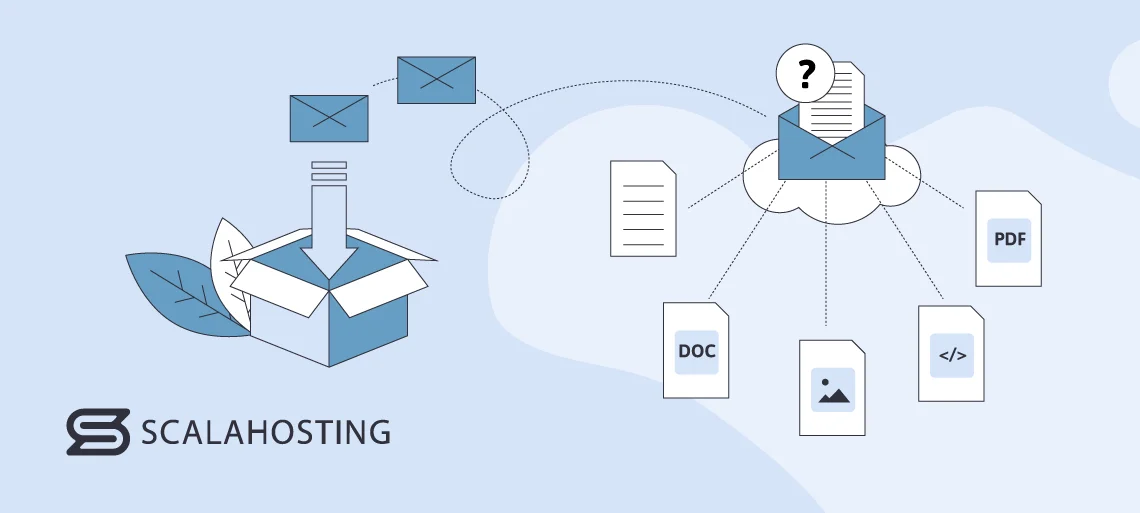
All emails are not equal in the world of archiving. Let’s break down what needs saving:
1. The entire email
Think beyond the message. Every bit counts – subject lines, signatures, all of it. They’re pieces of the puzzle, crucial for the full story.
2. Attachments: the hidden gems
Attachments are treasure troves. We’re talking documents, spreadsheets, PDFs. Often, they’re the real meat of the email.
3. Metadata: the invisible backbone
Metadata is the invisible yet vital part of the equation. Who sent it, when, to whom –– all this can make or break a case in legal disputes.
4. Inbound and Outbound: both sides of the story
Archiving is a two-way street. What you send and receive. Only by keeping both can you get the complete picture.
Next up, we dive into how to archive emails. Because knowing what to save is just the start. The method? That’s key.
Picking your Email Archiving Path
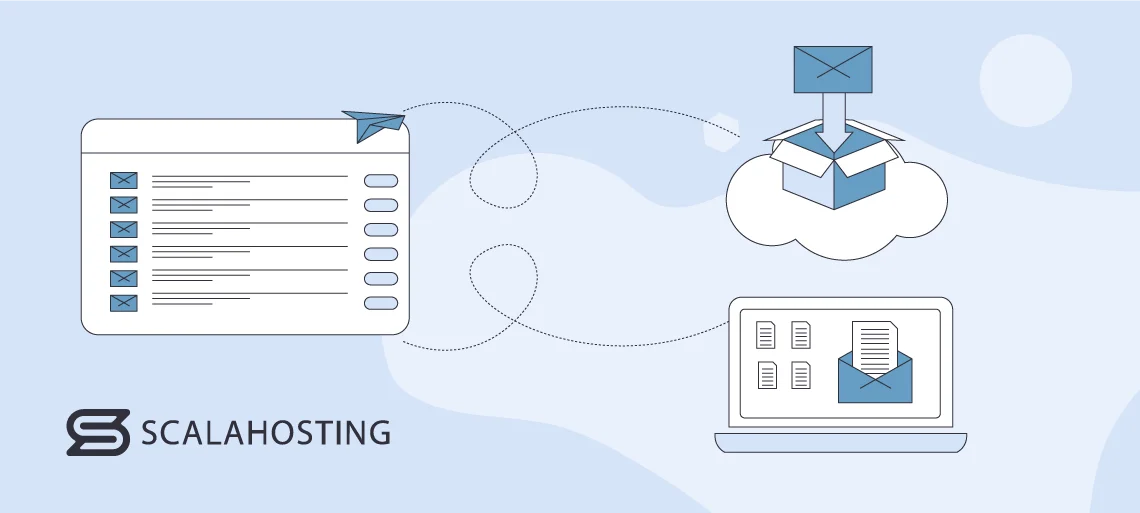
Email archiving? It’s not one-size-fits-all. Let’s check out the main ways to do it:
1. On-premises archiving: DIY style
This is the DIY of email archiving. You set up and manage the hardware and software on your own turf. The upside? Complete control. The downside? It can be pricey and resource-intensive. You’ll need space, tech smarts, and time.
2. Cloud-based archiving: the easy route
Cloud-based archiving is like renting an apartment instead of buying a house. You use someone else’s setup. It’s usually cheaper, easy to scale, and no headaches over maintenance. The catch? Less control over your setup.
3. Hybrid solutions: mix-and-match
Torn between DIY and cloud? Go hybrid. It’s a bit of both. You get the control of on-premises with cloud flexibility. This can be a good middle ground, especially if you’re transitioning from one system to another or have specific compliance needs.
Each method has its ups and downs. It boils down to what you need – budget, rules, and your IT muscle. Next, we’ll guide you in choosing the best email archiving solution for you.
Picking your Email Archiving System: What’s Key
Choosing an email archiving system? It’s like finding the perfect balance. Think of functionality, compliance, and your budget.
Must haves in your email archiving software
- Fast Search: Get a system that finds emails quickly. Search by sender, date, keyword –– it should be as straightforward as possible.
- Smart Storage: Look for data deduplication and compression. These tech tricks cut down your storage needs and costs.
- User-Friendly: Avoid complex systems. You want something simple where archiving and retrieval are simplified.
- Automatic Archiving: Set it and forget it. Automate your email archiving to stay compliant and reduce workload.
Vetting vendors: Security and compliance are key
- Compliance Check: The system must meet all legal standards – GDPR, HIPAA, etc.
- Top-Notch Security: Strong encryption and tight security measures are non-negotiable.
- Reputation Matters: Research your vendor. Customer feedback and track record count.
- Smooth Integration: It should fit seamlessly with your existing systems.
- Backup Plans: Look for solid backup and recovery options.
Making your choice
Consider everything – features, costs, industry regulations. The best choice today should also be ready for tomorrow’s needs.
Crafting a Smart Email Archiving Strategy
Crafting an email archiving strategy isn’t just about ticking boxes. You need to ensure you’re storing what you need for as long as you need it, and only the right people can get to it.
Here’s your playbook:
Building solid archiving rules
Choose Wisely: Don’t save every email. Pick the ones that count, legally or for your business.
Time Matters: Set how long to keep those emails. Think about legal needs and what’s right for your business.
Control Access: Decide who gets in. Who can see the archived emails? Make the rules clear.
Email archive management: Keeping it top-notch
- Stay Current with Policies: Laws change. Businesses need to evolve. So should your email archiving policies. Regular updates are a must.
- Data Integrity Checks: Regularly confirm that your stored data is complete and untampered. It’s all about keeping things trustworthy.
- Routine Audits: Similar to a health check for your archive, audits ensure you’re in line with policies and regulations.
- Make It Searchable: Make finding stuff easy, not like a needle in a haystack.
Access control: Who Sees What
- Role-Based Access: Not everyone needs full access. Implement RBAC (Role-based access control) to tailor access levels according to job roles.
- Tracking Access: Keep a log. Who accessed the archive, when, and why? This is key for security and compliance.
- Reviewing Access Rights: People move roles; sometimes their access level needs to change. Regular reviews keep everything aligned.
Follow these steps, and your email archiving strategy is not just good –– it’s golden.
Securing your Email Archives: The non-negotiables
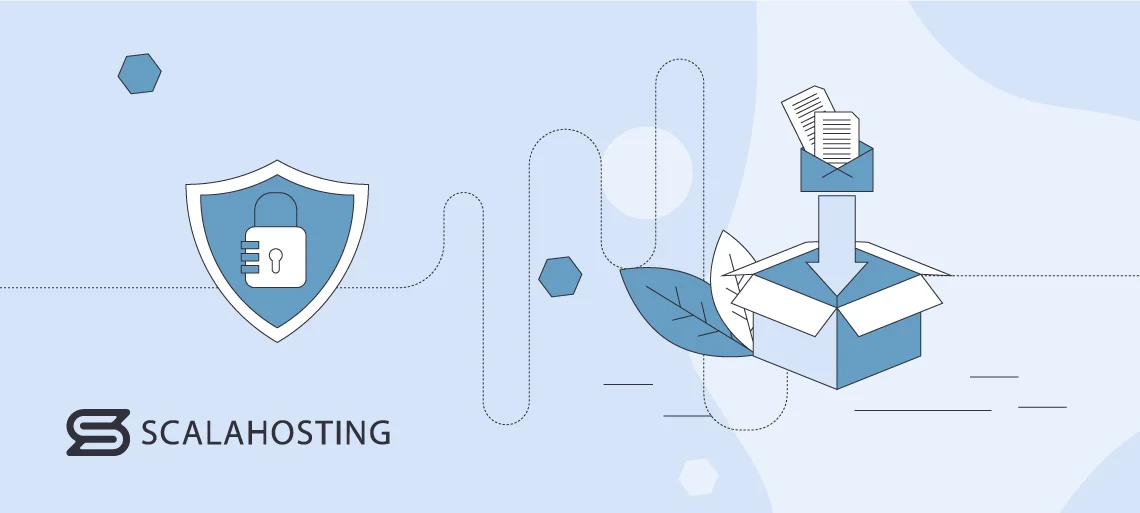
Data Security: Here’s the bottom line. You’ve got to keep those archived emails safe. But how can we do that?
- Encrypt Everything
- In Transit: Encrypt emails that are going to the archive. TLS (Transport Layer Security) is your friend here.
- At Rest: Once archived, keep them under AES (Advanced Encryption Standard) lock and key. Even if someone gets their hands on the data, they can’t really read it.
- Update Religiously
- Keep Software Fresh: Outdated software? It’s a hacker magnet. Regularly install security patches to stay ahead of the hackers.
- Tight Access Control
- Strong Passwords: Make your password as complex as possible – capital and lowercase letters, numbers, special symbols, the works. Consider two-factor authentication for an extra layer of safety.
Privacy and compliance in email archiving: the legal tightrope
- Play by the Rules
- Privacy Laws Matter: GDPR and HIPAA – know them inside out. They dictate how you handle personal data. GDPR, for instance, gives people rights over their information – access, corrections, even deletion.
- Keep Only What You Need
- Automate Deletion: Set rules to trash emails once they’re past their legal shelf life. That’s, of course, if you don’t need to store your old conversations for other reasons. In such cases, just make sure you don’t clutter your email server too much.
- Educate Your Team
- Know the Email Dos and Don’ts: Everyone should be up to speed with the email trends and regulations. From spotting phishing scams to proper email handling, knowledge is your best defense.
It’s not just about tech tools. It’s about staying within legal lines. The goal? An email archiving system that’s secure, private, and legally sound. Use the right tech, but never lose sight of the laws you’re under.
Securing Data, Unlocking Access: Mastering Email Archiving
Following the stringent security and privacy protocols we just discussed, let’s delve into the crucial aspects of searching and retaining these securely archived messages.
Finding what you need fast
Imagine you’ve got a well-secured vault. Great, but can you find what you need when you need it?
That’s where efficient search and retrieval come in:
- Advanced Search Mechanics: You need a system that lets you pinpoint an email quickly, using filters like date ranges, keywords, or sender and recipient names.
- Effective Indexing: You want to make your emails easily accessible. A well-indexed archive is like a well-organized library — finding what you’re looking for becomes straightforward.
- Ready for Legal Scrutiny: Quick retrieval isn’t just convenient, it’s often a legal requirement. Your system should support compliance with regulations, making e-discovery and audits less of a headache.
Long-term email storage
Now, let’s talk about keeping those emails safe over the long haul:
- Choosing the Right Storage: Long-term doesn’t just mean years –– it can mean decades. Opt for storage solutions known for their durability and reliability.
- Maintaining Data Integrity: Regular checks are crucial. They ensure your archived data stays accurate and intact — essential for both business and compliance reasons.
- Adapting to Future Needs: Technology evolves. Ensure your archived data won’t become unreadable as new technologies emerge. This might involve periodic data migrations or format updates.
Automated data housekeeping
Finally, striking the right balance in data retention:
- Automate to Regulate: Set rules for how long emails should be kept. Once their time is up, they should be automatically purged to stay compliant and storage-efficient.
- Stay Dynamic with Policy Reviews: Laws change, and so should your policies. Keep them in sync with current legal requirements and business needs.
- Balance is Key: Hoarding every email isn’t practical or legal. Keep what you need for operational and compliance purposes, and let go of the rest.
Next Up: We’re diving into audit trails and reporting. How do you keep your email archiving not just compliant but practically perfect?
Legal Navigation in Email Archiving: What You Need to Know
Navigating the legal aspects of email archiving involves understanding how emails are used in legal discovery and ensuring compliance through audit trails and reporting. Let’s explore these areas:
Email archiving in the legal lens
In legal disputes or investigations, email archives can become a focal point:
- E-Discovery Readiness: Be ready for legal requests. Can your system find and hand over specific emails quickly?
- Legal Holds: Anticipating a lawsuit? Some emails need to be frozen –– no changes, no deletions.
- Preserving Context: Keep your emails intact and in context. They should be bulletproof as legal evidence.
Audit trails and compliance reporting
Audit trails and reporting are critical for demonstrating compliance with various regulations. Here’s what you need to focus on:
- Maintaining Audit Trails: Who saw what email and when? This tracking is key for proving you’re playing by the rules.
- Regular Reporting: Regular reports from your archive can spot issues or show you’re on track.
- Audit-Ready: When auditors knock, your system should make showing off your compliant archiving easy.
Balancing the Budget in Email Archiving
Managing the costs of email archiving is crucial for businesses. It’s about getting the most bang for your buck while ensuring your archiving strategy meets all necessary requirements.
Crunching the numbers
Understanding and managing the costs involved in email archiving is key:
- Initial Setup and Ongoing Costs: Think setup and the long run. What will it cost to get started and keep going? This includes software fees, hardware, and maintenance.
- Storage Needs: More emails, more storage, higher costs. Smart storage, like data deduplication, can cut down on space and save money.
- IT Resource Allocation: Don’t forget the cost of people-power. How much time and training will your IT team need?
Picking features that count
Choosing the right features without overspending requires a delicate balance:
- Essential Features vs. Nice-to-Haves: Focus on must-haves, not nice-to-haves. You need solid search, security, and compliance. If there’s room in the budget, then think about the extras.
- Scalability: Choose a system that grows with you. Avoid paying for too much too soon, but keep room to expand.
- Cost-Effective Solutions: Cloud solutions can be easier on the wallet, especially for smaller businesses. Less upfront cost, more flexibility.
Getting It Right
It’s not just about saving emails. It’s about smart spending. Find the balance –– a system that does what you need without breaking the bank.
2024 trends in email archiving solutions
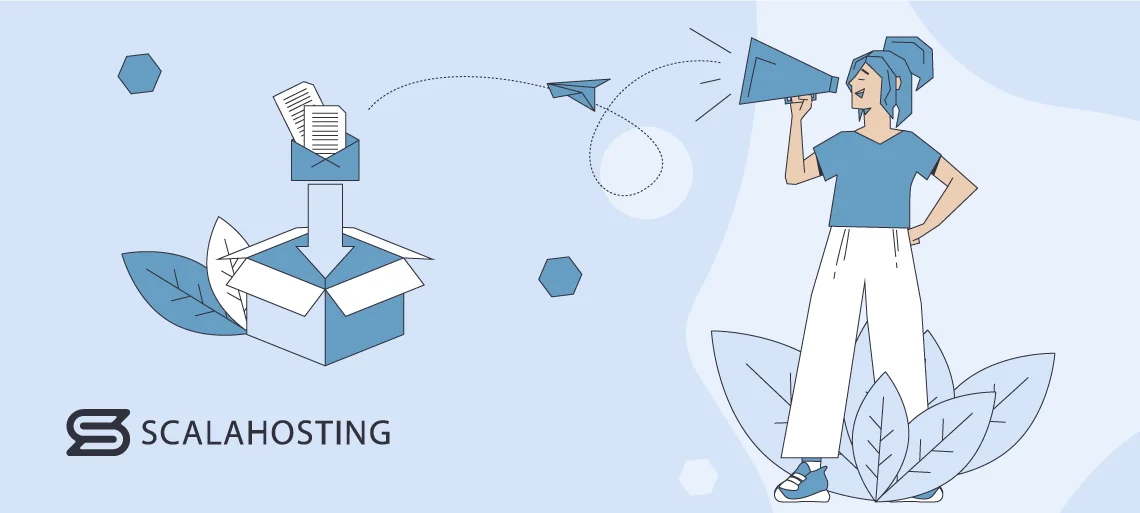
In 2024, email archiving solutions are evolving, influenced by technology and environmental concerns. Here’s what’s trending:
Integration of AI and big data
Artificial Intelligence (AI) is reshaping email archiving. It’s enhancing data management and security, like fighting ransomware. AI and machine learning are monitoring for security threats, making archived data safer.
Sustainable data archiving and storage management
Eco-friendly data storage is big nowadays. We’re seeing energy-efficient data centers and sustainable technologies in data storage, including email archiving. High-capacity, durable, and energy-efficient tech is in.
Strategies for long-term email data preservation
The trend is ‘forever active archives.’ Think long-term data value, with strategies to manage and access data for decades, even centuries. It’s about ensuring data remains accessible and relevant as technology evolves.
Cost-effective universal systems and cloud repatriation
2024 sees more universal data systems that are cost-effective. There’s also cloud repatriation, as organizations seek cost savings, compliance, and flexibility. Yet, Storage as a Service (StaaS) is still growing, balancing cloud and on-premises solutions.
Consumption-Based Pricing for On-Premises Workloads
With rising cloud costs, organizations are bringing workloads in-house and adopting consumption-based pricing for data center hardware. This trend lets organizations pay only for what they use.
These trends show a dynamic shift in email archiving, focusing on AI integration, sustainability, adapting to costs and compliance, and evolving storage strategies for long-term data management.
The Future of Email Archiving: Smart, Secure, Sustainable
Looking ahead, the landscape of email archiving is poised for significant changes, driven by evolving technology and shifting business needs. Here’s what we can anticipate in the realm of email archiving strategies:
Email archiving strategy: What’s next?
- Increased Emphasis on AI and Machine Learning: Expect more innovative email sorting options, better search functions, and tighter compliance. AI is about to make email archiving a whole lot more clever.
- Greater Focus on Privacy and Security: As data breaches rise, security in archiving will tighten. Advanced encryption methods, secure access protocols, and sophisticated threat detection mechanisms will become standard.
- Shift Towards More Sustainable Practices: IT’s going green. More energy-efficient archiving, greener data centers, and storage optimizations are on the horizon.
Tech evolution in email archiving
- Cloud-Based Solutions to Dominate: The cloud’s here to stay. It’s all about reduced overhead, scalability, and collaboration, fitting perfectly with our remote-work world.
- Integration with Other Business Tools: Email archiving solutions will likely become more integrated with other business and communication tools, offering a more unified data management approach. CRM systems, collaboration platforms, analytics –– all working together.
- Advancements in Data Retention and Deletion Policies: Expect more refined tech for holding onto or letting go of data. This will aid businesses in complying with evolving data protection regulations while managing the growing volume of email data.
Looking Forward
Email archiving’s future? It’s exciting. We’re looking at solutions that are not just legal must-haves but also strategic assets. Get ready for archiving that’s efficient, secure, and smart –– a key player in your business operations.
ScalaHosting: Your Email Archiving Powerhouse
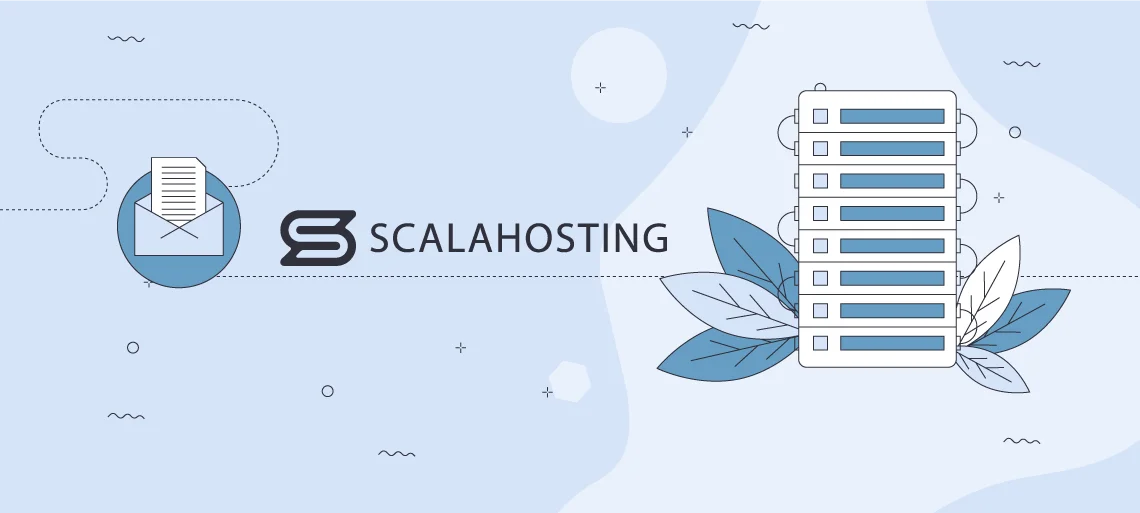
ScalaHosting’s SPanel seamlessly fits into your system, making integration a breeze. It’s cloud-based, so it scales with your business and offers remote access, perfect for today’s mobile workforce.
Worried about losing important emails? Don’t be. ScalaHosting provides robust backup solutions, ensuring your online messages are always secure. And if there’s ever a data hiccup – a quick recovery feature acts as a reliable safety net.
Security is paramount in an era of frequent data breaches, and ScalaHosting brings peace of mind with top-notch SShield protection. Plus, for those navigating the complexities of GDPR or HIPAA, ScalaHosting simplifies compliance.
We understand the importance of budget-friendly solutions without compromising on quality. That’s why ScalaHosting offers premium features at an affordable price, all wrapped up in a user-friendly interface. It’s the smart, hassle-free choice for modern email archiving.
The Bottom Line
ScalaHosting in your email archiving toolkit means more than compliance and security. It’s about being efficient, cost-effective, and user-friendly. Consider it a smart, all-in-one solution for the modern business. Contact us today and see how we can help with your online communication!
Wrapping It Up
That’s the rundown on email archiving. We’ve covered everything – from security essentials to the latest trends. It’s clear now, right? Email archiving isn’t just ticking off a compliance box. It’s a key part of running your business smoothly.
Enter ScalaHosting. It makes email archiving doable and affordable. You get a balance of cost, user-friendliness, and top-notch features. In this digital age, smart email archiving is about more than just revisiting old messages – you are protecting your business’s future. Remember, managing your emails well is about being prepared for what’s ahead.
FAQs
Q: What is the primary purpose of email archiving?
A: Think of email archiving as a digital memory bank. It’s about keeping messages organized and accessible for years. This is crucial for legal reasons and when you need to backtrack on important conversations. Archives are your long-term, searchable storage for important site and email data.
Q: How does email archiving differ from regular email backups?
A: Email archiving is your long-term storage plan, keeping everything searchable and compliant. Think of it like a library of all your past online messages. Backups? They’re your short-term safety net, helping you bounce back quickly from data disasters. Archiving is for access and compliance; backups are for quick recovery.
Q: Is cloud-based email archiving secure?
A: Absolutely. Cloud archiving means top-tier security. We’re talking about strong encryption, tight access control, and keeping up with privacy laws like GDPR. It’s a solid choice for businesses that need their emails stored securely and within legal compliance standards.

